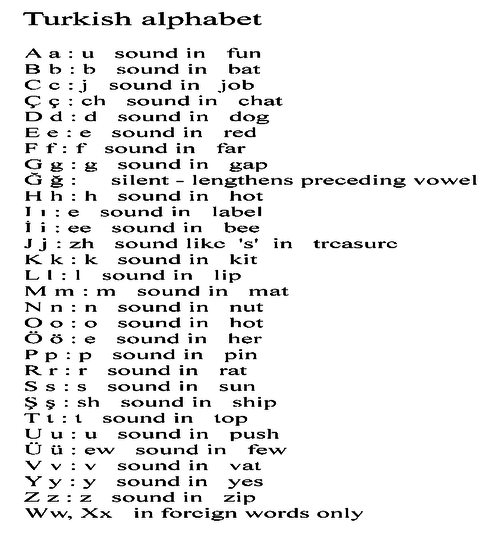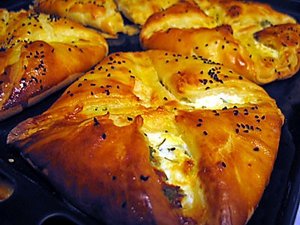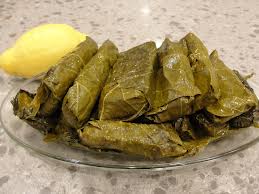
Turkey or officially known as the Republic of Turkey is a transcontinental country situated in Anatolia in Western Asia and on East Thrace in South-eastern Europe. It occupies a small portion of Europe and Asia Minor. Towards the east, Turkey is covered by a large mountainous peninsula known as Asia Minor or Anatolia. Turkey with an area of 783,562 sq. km, shares its border with eight countries: Greece to the west, Bulgaria to the northwest, Armenia, Iran and Azerbaijani exclave of Nakhchivan to the east, Georgia to the north east, Syria and Iraq to the South east. The Aegean Sea lies to the west, the Black Sea lies to the north and the Mediterranean Sea lies to the south. Ankara the capital city is situated in Asia Minor. Istanbul is the largest city of Turkey. Istanbul is also the only country in the world that is built on two continents. Mount Ararat at 5,166 m is the highest point in the country.
The coastal areas of the country that border the Mediterranean Sea and the Aegean Sea experience a temperate climate, with relatively hot and dry summers and mild to cool, wet winters. The coastal areas that border the Black Sea have an Oceanic climate with warm and wet summers and cool to cold, wet winters. The coastal areas of the Black Sea receive the highest precipitation throughout the year. The eastern region of that coast receives an annual rainfall of 2,500 mm, which is the highest in the country. Harsh conditions prevail in the more arid interior regions. The mountainous areas near the coastal regions experience a continental climate with sharp contrasting seasons. Severe winter conditions are experienced in the plateaus. Temperatures range between -30°C to -40°C in the eastern Anatolia and snow remains on the ground for a period of four months. In the western regions the winter temperature averages below 1°C. Summers are usually hot and dry with an average temperature of 30°C during the day. Annual rainfall averages about 400 mm. Konya plain and the Malatya plain are the driest regions of the country with rainfall averaging less than 300 mm. The wettest month is May, whereas July and August are the driest regions. In Istanbul and in the area of the Sea of Marmara a moderate climate prevails with average winter temperatures of 4°C and 27°C during the summers.
Snowfall in Istanbul, Turkey

The constitution of Turkey provides for freedom of religion to all its citizens. Being a secular state with no official religion, the constitution guarantees all its citizens to practice or preach any religion according to their beliefs or culture. Islam by far, is the dominant religion in the country with about 99.8% of the total population to be the followers of Islam. An approximate of 80% to 85% of the Muslims are the Sunnis of the Hanafi School and 15% to 20% are the members of Shiite sects. All the Muslims residing in Turkey recognize the standard of Islamic creed and duties, but only the most religious ones fast, or make a religious trip to Mecca. There are also a few Sufi practitioners in the country. There are small numbers of Jews and Christians that form a small minority in the country. The Christian denominations, in the country represent less than 0.2% of the country’s population, which includes Oriental Orthodox, Roman Catholics, Greek Orthodox and Protestants and the Jewish, that form the majority are Sephardi. There are about two hundred and thirty six churches in Turkey that are open for worship.
Mosque in Turkey

Turkish, the country’s official language is spoken by 90% of the total population. An approximate of 6% of the population speaks Kurdish and the rest speak Greek, Arabic or one of the other languages of the minority groups. The government developed the modern Turkish language during the late 1920’s as Ottoman Turkish; the written language was complicated with Arabic characters. As Ottoman Turkish included words and grammar from the Arabic and Persian languages, it was so difficult that only the scholars and the people of elite group could learn to read it. By 1928, the government established new alphabets and removed all the foreign words from the language. Language education programme was started and promoted for the people and Ottoman Turkish was totally outlawed.

Most of the Turks prefer cracked wheat bread and yoghurt. The Turkish cuisine includes various different stews of meat (lamb and beef) and vegetables that are used in making dishes like Kebab, dolma and borek. Bread is consumed with almost every meal. Borek is a pastry made of dough with many thin layers that are filled with cheese, spinach and ground meat. Kebab is meat roasted in pieces or slices or meatballs that are grilled. Dolma is a popular dish made of different vegetables and leaves that are filled with or wrapped around rice or pilaf. During the winters, breakfast for the Turks consists of bread with hot soup, whereas the breakfast during the summer is usually bread and jam or eggs along with warm milk or hot tea. The noon meal consists of meat stew and vegetables accompanied by a side dish of rice or Bulgar pilaf. Many Turks prefer Borek or dolma instead of the meat stew. Baklava is a famous desert dish mostly served during special occasions. Food preparation and preference varies by the region. All the cities in Turkey have number of restaurants and snack stands that serve kebabs, meat wraps with flat bread, soups, fish and pastries. Pork is a major food taboo in Turkey, as it is forbidden to Muslims. The Koran also restricts them from alcoholic beverages, but many Turks drink wine and beers. Beverages for the Turks include tea, that is consumed throughout the day or coffee which is usually taken after the meal. Ayran is among the popular beverages for the people in the country.
Borek

Dolma

In food production, Turkey is self-sufficient. The farmers, fishermen and the people inclined towards animal husbandry produce a wide variety of vegetables, fruits, nuts, fish and meat for the consumers. Luxury food items and dairy products from the European Union countries are available in all the large cities of Turkey. Majority of the farmers produce for both sale and for domestic consumption. The farmers sell their surplus products to the large wholesalers and rely on the local and regional market for the sale of their produce. Large farms existing in the country have now been converted into modern agricultural enterprises. These enterprises employ machinery, chemical fertilizers and irrigation. These large farms concentrate mainly on fruits and industrial crops that help in contributing towards the economy. The mechanization of agriculture in the country reduced the need for labour, causing many farmers to migrate to the cities. The factories in Turkey produce wide variety of products that include textiles and footwear, processed food, iron and steel, cement, fertilizers, chemicals, radios and televisions sets and kitchen appliances. Some industries in the country assemble cars, trucks, buses and aircraft with the help of imported and domestic parts. The major export commodities include apparel and textiles, iron and steel products and foodstuffs. Turkey’s export also includes pulses, cereals, sugar, nuts, dried fruits, olive oil, and livestock products. The country’s trading partners are Italy, United States, United Kingdom, France, and Germany.


